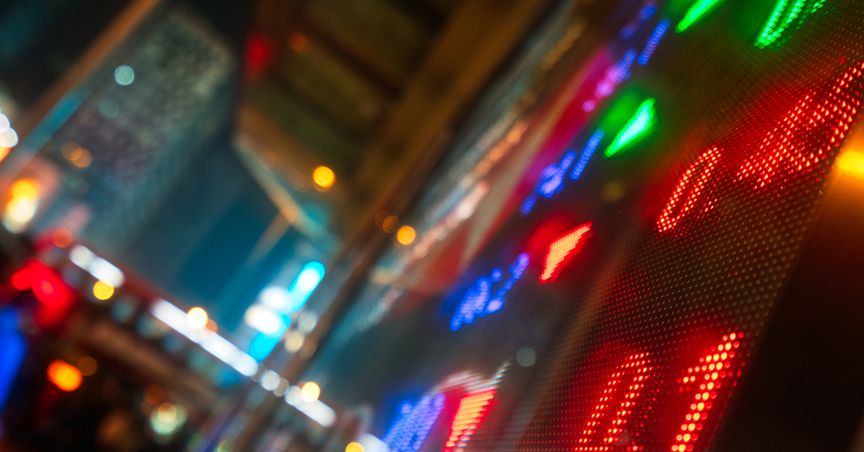Summary
- Big banks are advising clients to stock up on gold as investors look to hedge amid uncertainty on economic recovery due to rising cases of coronavirus.
- Australian investors are stocking up on gold stocks instead of metal itself, and gold prices are biased to be on the upside in future.
- Possibility of second wave of COVID-19 is higher if policies and behaviour come back to normal too soon.
- Of late, Australia is under threat of cyber-attack by a state-based actor targeting Australian organisations and government.
While the wealthy are increasingly buying gold across the world doubting overvalued stock markets, and questioning the effect of central banks that are on a stimulus spree, Australia is facing the risk of second COVID-19 wave, and is under a sustained cyber-attack by state-based actor.
Let's have a look at the 3 bugs in the system affecting Australia.
Elite class stocking up on gold
Gold has been among the most sought-after metal in 2020, with the metal increasing by more than 15% during the first 5 months of the year.
The super-rich are being advised by big banks to stock up on gold as coronavirus is still active with its widespread prevalence across economies.
Most of the private banks had been advising their clients to not stock up on gold or hold just a little amount of metal before coronavirus pandemic took place.
However, at present, some private banks are channelling up to 10% of their client's portfolio into metal as an enormous stimulus by central bank decreases bond yields, subsequently making non-yielding gold more desirable.
In Australia, investors are stocking up on gold by purchasing shares in gold miners rather than buying metal itself.
ALSO READ: Gold, Crude Oil, and Bitcoin -Through a Chartist’s Lens
Gold is considered a safe-haven asset and has performed quite steadily during coronavirus, which helped in making it an alluring investment option. The demand for metal has gone up due to investor worries on increasing coronavirus cases in China and the US.
Secondly, when real interest rates go down, gold tends to prosper. Moreover, investors prefer to invest in metal even though returns are not certain, instead of keeping money in a bank account, which earns nothing.
The third reason is the inflation risk with gold established as a long-term hedge against inflation. Central banks have increased their balance sheets by creating trillions of dollars digitally due to coronavirus fallout on markets and economy. This has raised concerns about higher inflation in future amongst investors with gold set to gain.
Goldman Sachs stated that the gold investment demand grows during the initial phase of economic recovery due to persistent debasement worries and reduced real rates. Simultaneously, consumer demand has returned because of relaxation of lockdowns measures and a weaker dollar.
Gold demand is anticipated to be supported by prices inclined on the upside. Prevalent threats from coronavirus, overvalued equity markets, low-interest rates and high inflation are some of the reasons that provide an optimistic view for gold demand and prices. All these factors have made wealthy, including Australians to stock up on gold to hedge their investments, leaving investors who can lose much, worrying and preparing for forthcoming economic gusts.
Risk of the second wave as restrictions ease
While some countries are still bearing with the coronavirus spread, others who have controlled the virus are gripped with fears of second wave. The concerns came after Beijing, the capital city of China reported 137 new cases between 11 June and 17 June after having 50 virus-free days. The virus originated from Xinfadi wholesale food market and has forced the city to adopt severe lockdown and restriction measures.
A massive second wave of coronavirus is suspected to occur in Australia as schools, workplaces have reopened, and as the weather turns colder and becomes less humid. Further, following social distancing rules along with rigorous contact tracing when a case is detected is of extreme importance.
According to a report published by Stephe Duckett, Grattan Institute health director, opening of workplaces too early could cause a second wave of infection. He added that workplaces are at high risk particularly, as going to work makes people come in contact with many individuals. Hence, workplaces must be reopened slowly with measures like majority of people to work from home in place to reduce physical contact.
Though some policy experts suggest - if measures are relaxed significantly, and behaviour returns to normal too soon, a second wave might occur in late August, or early September citing winter season as a crucial time, but stated that there is no surety on the second wave. The virus has not yet been mutated and taken a new form. The mutated form does not pose a high threat than coronavirus strain, which has already gripped the world given that there is no vaccine or herd immunity.
Australia under state-based cyber attack
At present, Australian government has been struggling with massive cyber-attacks and the country is being targeted by a sophisticated state-based actor as described by Prime Minister, Scott Morrison.
On 19 June, Morrison revealed about attacks and stated that Australian government and organisations are being targeted across several sectors including political organisations, education, health, essential services providers, and critical infrastructure operators. However, he did not specify the agency or organisation names who are under attack and the state, which is behind the attack, but revealed that a state-based actor had done it with some very significant capabilities.
ALSO READ: Optimism around Economic Outlook; Cyber-attacks target Australian firms
Morrison's statement led many cyber experts to point fingers at China, Russia, Iran, and North Korea, which have the capacity for such attacks. Political observers pointed fingers particularly at China as trade relations between the countries came under increasing strain recently after Australia called for an enquiry into origins of coronavirus. Since then, China has imposed high tariffs on Australian barley exporters, banned beef imports and discouraged Chinese students and citizens from studying or travelling in Australia.
Hence, Morrison urged businesses, particularly health infrastructure and service providers, to improve technical defences. He also stated that the motive behind bringing up this issue was to raise awareness amongst the public and not to lower the guards against cyber-attacks.






